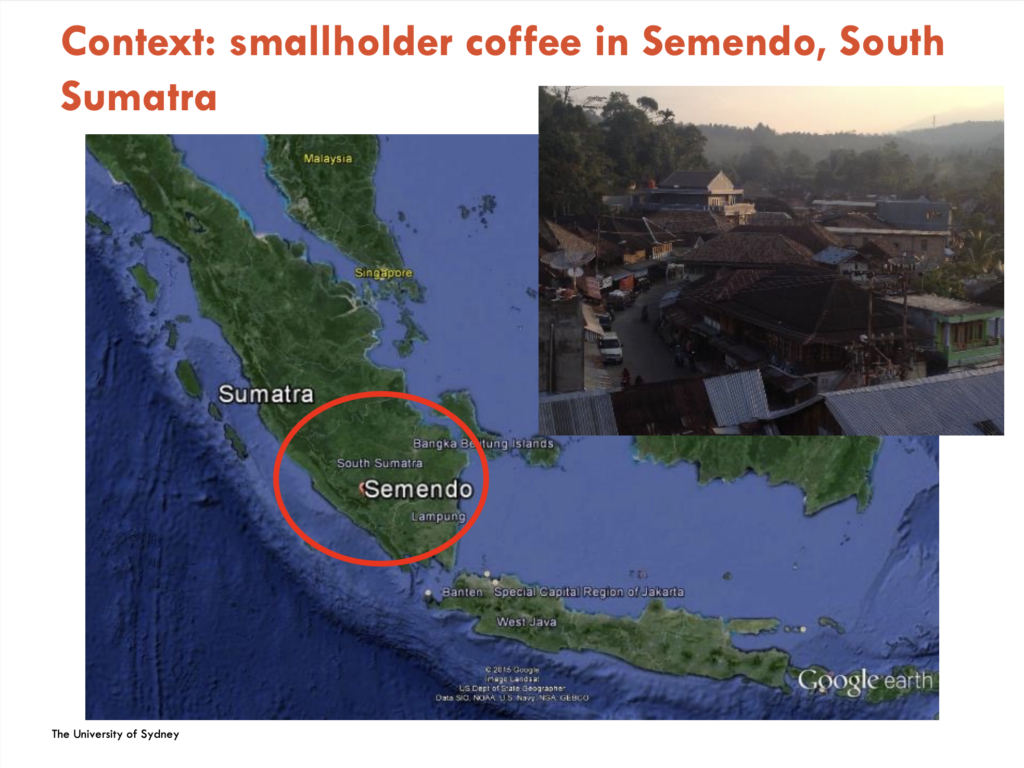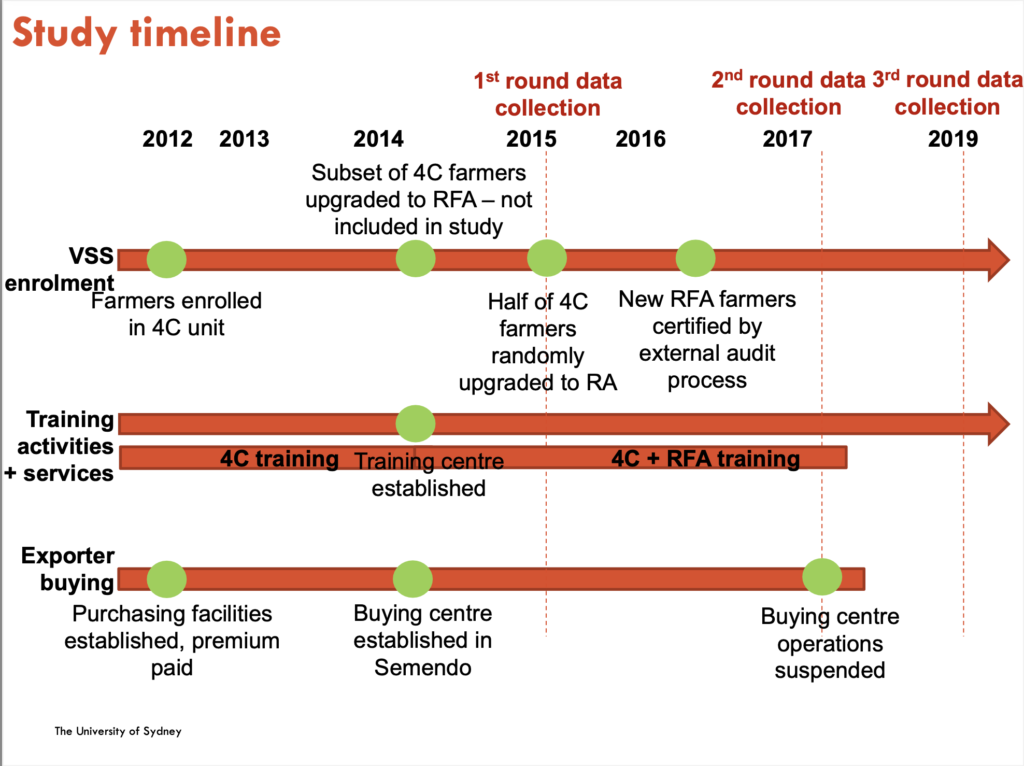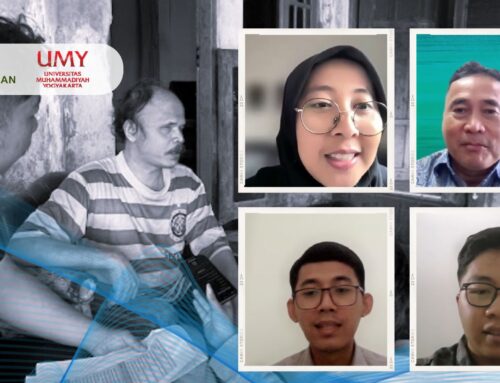FKP hosted by J-PAL Southeast Asia with Russell Toth (The University of Sydney). Thursday, 16 June 2022.
KEY POINTS:
- Sustainability programs cover a substantial share of the global production of agricultural commodities such as coffee, impacting millions of smallholder farmers in emerging markets. Sustainable production is a dominant feature of global coffee value chains. More than half of global coffee production originates from farms or plantations following some form of certification or verification standard. While sustainability verification and certification programs are very important in global value chains, there is little rigorous evidence of its impact, particularly in the case of smallholder production, where coffee is typically a component of a more complex livelihood strategy.
- This study by Russell Toth, Bustanul Arifin, and Jeff Neilson evaluates the impacts of sustainability verification and certification programs for smallholder farmers in Semendo, South Sumatra Province, Indonesia. The study finds muted and highly mixed impacts of these programs across a range of outcomes. It does not observe a transformation on the coffee farm; if anything, a moderation of investment in coffee was observed. The study also fails to find the overall development impacts that these programs purport to provide.
SUMMARY
- Sustainability programs cover a substantial share of the global production of agricultural commodities such as coffee, impacting millions of smallholder farmers in emerging markets. Sustainable production is a dominant feature of global coffee value chains. More than half of global coffee production originates from farms or plantations following some form of certification or verification standard.
- Certification typically aims to improve the productive, social, and/or environmental practices of producers, and functions as a form of corporate social responsibility. The core assumptions behind a certification program are that producers have a gap in knowledge of optimal practices and that the certification process can bridge this knowledge gap and motivate them to follow optimal practices, leading to improved livelihoods. However, while sustainability verification and certification programs are very important in global value chains, there is little rigorous evidence of its impact, particularly in the case of smallholder production where coffee is typically a component of a more complex livelihood strategy.
- This study by Russell Toth, Bustanul Arifin, and Jeff Neilson evaluates the impacts of sustainability verification and certification programs for smallholder farmers in Semendo, South Sumatra Province, Indonesia. They evaluate the rollout of a coffee sustainability program involving two leading third-party standards (4C and RFA) implemented by an international exporter. They investigate whether 1) farmers change their behavior on the farm; 2) the program improves farmers’ economic, social, and environmental outcomes; and 3) the program has broader effects on household, community, and markets.
- Since the 1870s, Semendo has been responsible for coffee expansion across southern Sumatra. Currently there is around 15,000 ha of coffee being cultivated by 8,000 households. It is dominated by lower-value (Robusta) varieties (as opposed to Arabica). However, people in Semendo have mixed livelihoods of coffee, rice, fruit trees, and off-farm income. There are no previous major coffee certification programs in the region.
- The study employed complementary quasi-experimental and randomized control trial approaches to evaluate the impacts of a baseline sustainability program launched in 2012 (4C), and an enhanced program offered to a randomly-selected subset of participating farmer groups in 2015 (RFA). RFA brings additional training and standards including on coffee quality, environmental conservation, safe use of pesticides (equipment, practices, etc), and protection of workers.
- The study finds muted and highly mixed impacts of these programs across a range of outcomes. The study does not observe a transformation on the coffee farm; if anything, a moderation of investment in coffee. The study also fails to find the overall development impacts that these programs purport to provide. Additionally, there is no significant effect on knowledge and involvement in farmer groups, farm labor practices, coffee production, and livelihoods (income) at a 5% margin of error. Effects of the enhanced program are mixed, though it tends to lead to an improvement in subjective well-being.






